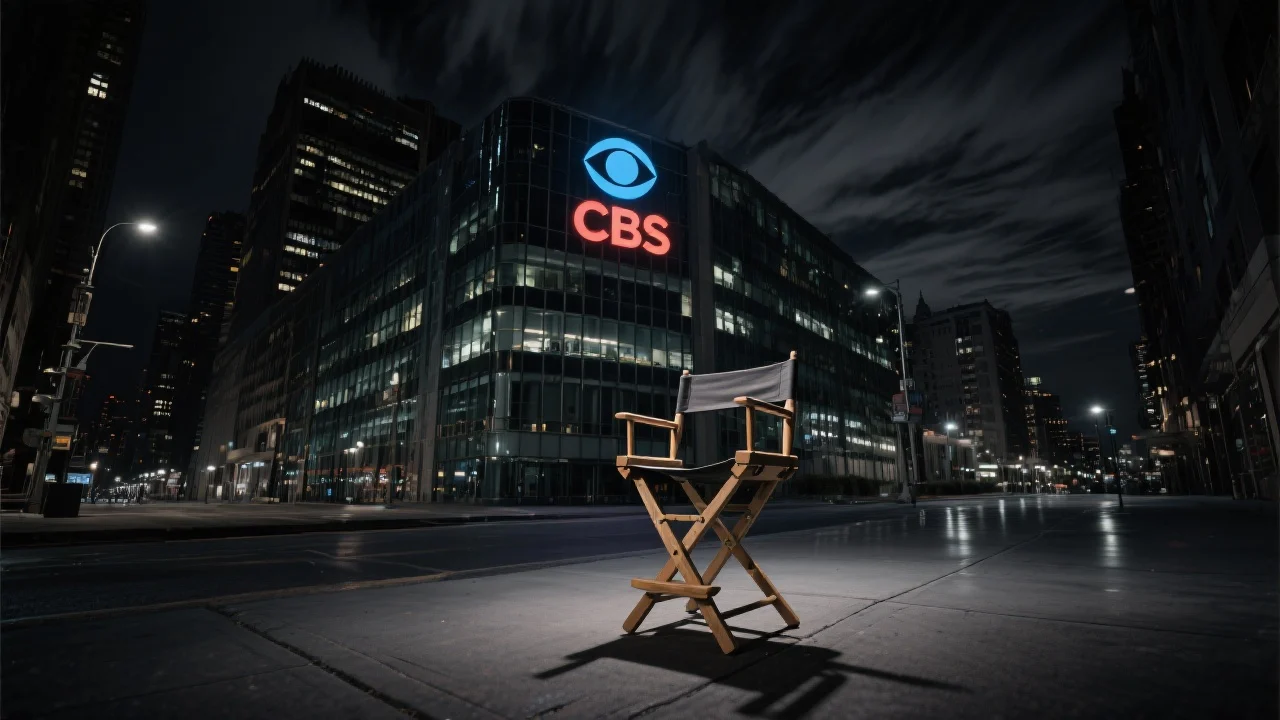A Sudden Announcement, a Stunned Audience

Colbert’s Late Show Canceled Amid Political and Financial Turmoil
Last night Stephen Colbert sat at his desk before his audience and delivered the kind of news that doesn’t just end a show, but closes a chapter in television.
CBS, after 33 years of late-night legacy, is canceling The Late Show, with Colbert’s final bow set for May 2026. The announcement came just days after Colbert’s pointed on-air criticism of his own network’s parent company, Paramount, for settling a lawsuit with Donald Trump. Colbert called the settlement “a big fat bribe” in front of millions.
The audience’s boos echoed the disbelief of a media world that’s grown used to Colbert’s nightly mix of wit, politics, and cultural therapy. “It’s not just the end of the show, it is the end of the Late Show on CBS. I’m not being replaced, this is all just going away,” Colbert told the crowd, his voice a mix of resignation and defiance. For a host who once found his stride by lampooning Trump’s rise, the timing felt almost poetic, if not suspiciously convenient.
The Official Line: “It’s Just Business”
CBS and Paramount executives were quick to frame the decision as a matter of dollars and cents, not content or controversy. In a joint statement, they called Colbert “irreplaceable” and insisted the move was “purely a financial decision against a challenging backdrop in late night.” The network, they said, would retire The Late Show franchise entirely, rather than attempt to fill Colbert’s shoes.
But the context is impossible to ignore. Just three days before the cancellation, Colbert had skewered Paramount for its$16 million settlement with Trump over a “60 Minutes” segment, at a time when the company is seeking regulatory approval for an$8.4 billion merger with Skydance Media. Colbert’s monologue was classic: sharp, irreverent, and unafraid to bite the hand that feeds. “Paramount knows they could have fought it,” he quipped, “because the company itself had called the lawsuit ‘completely without merit.’ And keep in mind, Paramount produced Transformers: Rise of the Beast—they know completely without merit.”
Political Fallout and Public Suspicion
The cancellation has already become a political football. Senator Adam Schiff, a frequent Colbert guest, posted on social media, “If Paramount and CBS ended the Late Show for political reasons, the public deserves to know. And deserves better.” Senator Elizabeth Warren called for an investigation into the network’s relationship with Trump, noting the suspicious timing.
Meanwhile, the right-wing media sphere has celebrated the move, with some voices suggesting it’s a long-overdue reckoning for late-night’s liberal tilt. Trump himself, never one to miss a media moment, reportedly told allies he “absolutely loves” that Colbert got “fired,” and hinted that Jimmy Kimmel could be next.
The Real Story: Late Night’s Shifting Landscape
Beyond the headlines and hot takes, there’s a quieter story about the changing economics of television. Late-night shows, once the crown jewels of network TV, are struggling to justify their costs in an era where young viewers are more likely to catch a monologue on TikTok than tune in at 11:35. CBS had already axed its After Midnight companion show, and the writing was on the wall for a format that’s become both expensive and, increasingly, out of step with how America consumes comedy.
Colbert’s run, which began in 2015 after David Letterman’s retirement, was marked by a transformation from character-driven satire to authentic, pointed commentary. He found his voice and his ratings by leaning into the chaos of the Trump years, offering a nightly catharsis for viewers who felt unmoored by the news cycle. In many ways, Colbert became the face of a new kind of late night: less about celebrity interviews, more about making sense of a fractured country.
What’s Next for Colbert and for Late Night?
Colbert, ever the showman, promised to keep working with his “usual gang of idiots” for another ten months. But the sense of finality is unmistakable. “I wish someone else was getting it,” he said, “and it is a job I am looking forward to doing with this usual gang of idiots for another 10 months.”
As for CBS, the network has yet to announce what, if anything, will fill the void. The Late Show’s end is more than a programming change; it’s a signal that the old rules of television, about who gets to speak and who gets to decide, are being rewritten in real time.
A Legacy of Laughter and Dissent
Colbert’s Late Show was never just about jokes. It was a nightly reckoning with power, hypocrisy, and the absurdity of American life. Its cancellation, whether truly financial or tinged with political calculation, marks the end of an era when late-night hosts could still shake the culture and sometimes, the corridors of power.
The question now is who, if anyone, will pick up that mantle. And whether the next generation of viewers will even care.
